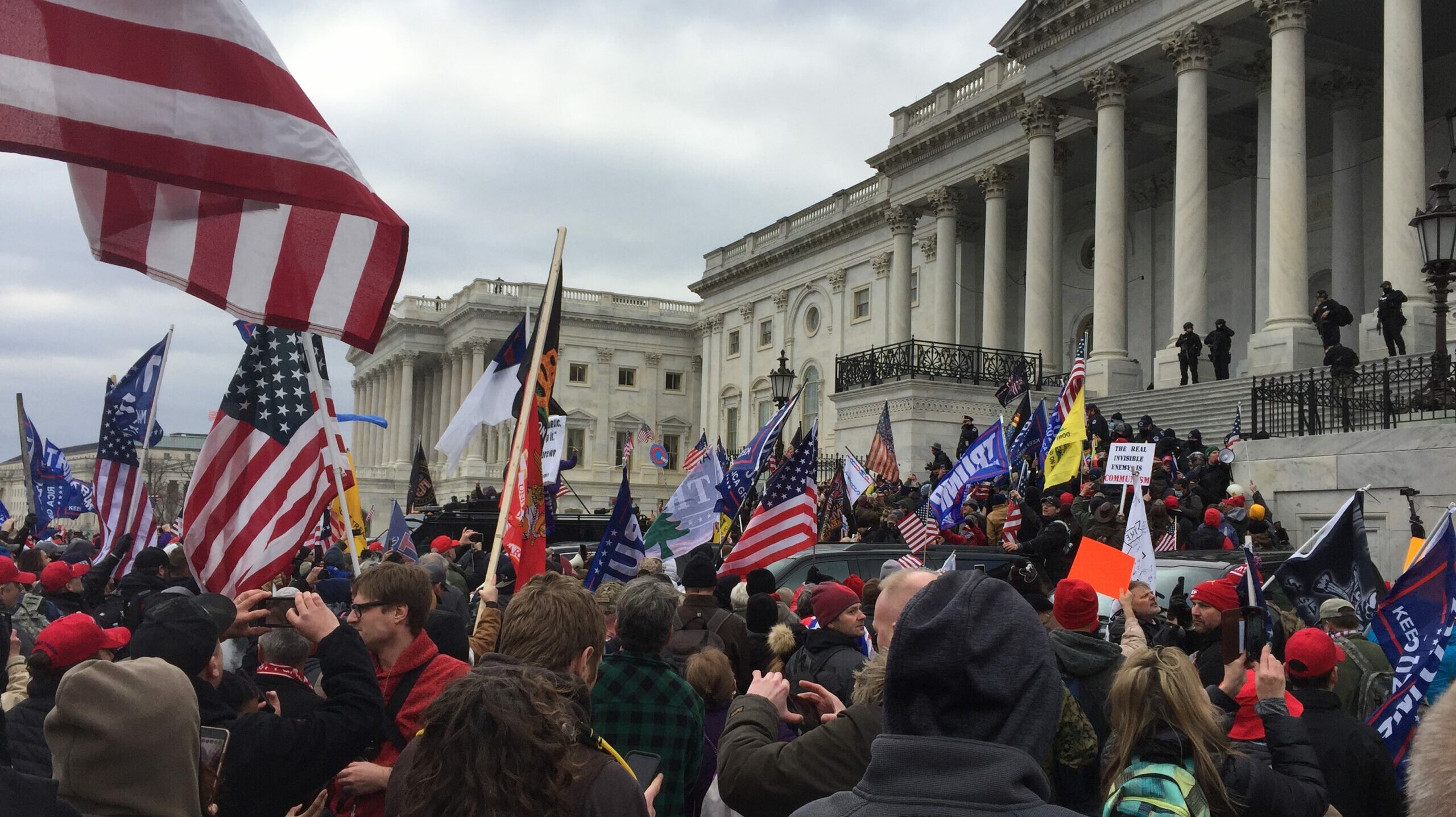It has been nearly seven years since one of the greatest political upsets – or victories – in recent history: the election of Donald Trump as the 45th President of the United States.
Trump is widely considered to be simultaneously one of the least, and most, popular presidents in history. The paradoxical nature of Trump’s popularity and unpopularity lies at the intersection of a series of factors that remind us Trump is a product, not a cause, of many long-term trends in America: the increasing polarisation of the two main parties; the concurrent widening gap between the ‘coastal elites’ and ‘flyover country’; and, as is often forgotten, the growing discontent of voters that drew them to political outsiders – regardless of ideological alignment.
The fact that 216,000 voters across Michigan, Pennsylvania and Wisconsin – key swing states – switched from Bernie Sanders in Spring 2016 to Trump by November of that year is a testament to this upset.
The paradoxical (un)popularity of Donald Trump
The paradox reveals itself in two facts that should be mutually exclusive: Trump was the most unpopular president ever, according to Gallup. And he is the most popular candidate in the Republican Party, sitting at close to 55% in the pre-primary polls. Now, as Trump is indicted for an historic fourth time, one would think that Trump’s popularity with Republicans would wane, especially given his own tweet that the Republicans are the party of law and order.
Quite the reverse, actually.
In mid-June, following Trump’s second indictment for ’31 counts of wilful retention of classified records’, the Independent reported that Trump’s popularity was rising, and that ‘nearly half of Americans believe charges against Trump are politically motivated’. Since the third indictment over his role played in the events of January 6th 2021, Trump’s popularity has only risen further.
The relationship between Trump being indicted and his support rising cannot be underestimated. Indeed, in February, Trump led his main challenger, Governor Ron DeSantis of Florida, by just 2%. That narrow gap has grown into a chasmous 37%. Trump’s team seem all too happy to go along with this, remarking in April that the charges ‘will seal his 2024 nomination‘.
This is true, though not necessarily for the reasons Trump’s team thinks so. One of the lessons not-quite-learned from the 2016 election season was that Trump only benefited from the negative coverage, but not because of Oscar Wilde’s wisdom that not being talked about is worse than being talked about. It is more complex than this, but the missed lesson of 2016 – on both sides of the Atlantic – is that populists benefit from negative coverage.
Dismiss populism at your own risk
It should be remembered that populists trade on their status as outsiders. Of course, the metric by which you measure an ‘outsider’ is the key variable; anti-Trump commentators consistently pointed to his ‘insider’ status from a number of different directions: the most common was that he was (and is) wealthy; the more radical commentary pointed to his status as a ‘white male’ as credentials of being an insider, with Corey Robin claiming in The Reactionary Mind that “Trump’s ascendancy suggests that the lower orders are no longer satisfied with the racial and imperial privileges the movement has offered them”; or that he is an embodiment of our Western entire culture.
Where the ‘establishment’ misses the point is that they made Trump an outsider. What it looked like, to the average Trump voter in 2016, was that the establishment that should have welcomed Trump – or at least given him a fair chance – closed their ranks to him, by refusing to take him seriously – and by extension, refusing to take seriously the concerns of his supporters.
Consider the uproarious laughter that met Ann Coulter’s prediction that Trump would win; the perception that Hillary Clinton was stacking the decks against him by (rightly) saying any lies must be called out in their debates; and after Trump strategist Steve Bannon named the ‘Deep State’ as a concerted effort by this establishment to prevent Trump’s potential victory, David Rothkopf claimed that there was indeed a Deep State – and it ‘saved the nation’ (from Trump).
It is worth noting that America is not alone in this strained response to a populist surge – Germany is considering ‘banning’ the Alternative für Deutschland (AfD) from future elections, on the basis that doing so would ‘strengthen democracy’. Even the Times is prepared to admit that the latest charges Trump faces in Georgia, along with 18 others on his 2020 campaign staff, ‘may not derail Trump’s presidential campaign for now, and in the short term may give it a boost’.
Attempting to thwart the aspirations of populists and their supporters is only ever a vindication of their core belief: that the democratic system that was constructed to empower the average person is now intentionally shutting them out.
These indictments are doing this again. One of the transformative effects of populism on democracy is that it makes the leader of the populist movement completely synonymous with the movement, and so any attacks on the leader are perceived as attacks on the people they represent. In this instance, the expectation baked into the presumptions of liberal democracy – that voters will abandon leaders who break the law – are reversed, and rather than condemning that leader, their supporters will condemn the accusations, or even condemn the law itself. We are seeing this with Trump, as his supporters ‘condemn January 6 charges‘, and we saw the same with Brexit, when judges were branded ‘enemies of the people‘.
If the establishment in America is not careful, it will create the conditions for its own defeat, once again.
The medicine is bitter, but would it save the patient?
Yet this brings us to a slightly different question: would the establishment benefit from being beaten by Trump? Trump’s popularity is a paradox, as above, but even inside his own party he is not well-liked – even by his supporters. In fact, one of the most important constituencies for Trump – white women – hated him personally, calling him a ‘narcissist’, ‘bully’, ‘racist’, ‘unprofessional’, ‘embarrassing’, and so on. So why did 55% vote for him?
Sarah Longwell’s answer was that ‘political enemies’ were perceived to pose more of a threat to America than Trump: “their real contempt was reserved for Democrats and ‘the media’, whom they viewed as unnecessarily adversarial to Trump”. Even now, ‘22% of GOP voters believe Trump committed a ‘serious federal crime’ but are still prepared to vote for him.
The figure of Trump has haunted the Democrats for the last seven years, but a spectre of Trump might be worse. The continual attempts to either bring Trump to justice or to persecute an innocent man (your viewpoint very much depending) has the effect of martyrising Trump, and in many ways a post-Trump MAGA might be even more of a threat to the Democrats. Vindicating the fears of the populist right in America – that their political system systematically excludes their chosen champions, rightly or wrongly – might have the effect of concretising a movement that is usually tied so strongly to its leaders.
The establishment in America finds itself at a difficult crossroads. One path might lead to a Trump White House again, but the eventual dissipation of the energy that carried him there; the other might involve removing Trump’s route to the Presidency altogether, but further anger the voter base that wants him there. In the same vein as our Director of Strategic Development wrote recently, the hard choice for the Democrats might be to fight Trump fairly – and risk losing in the short term, for a victory in the long term.










